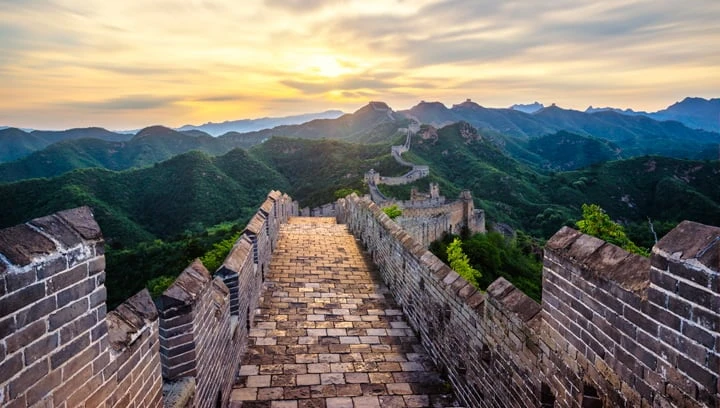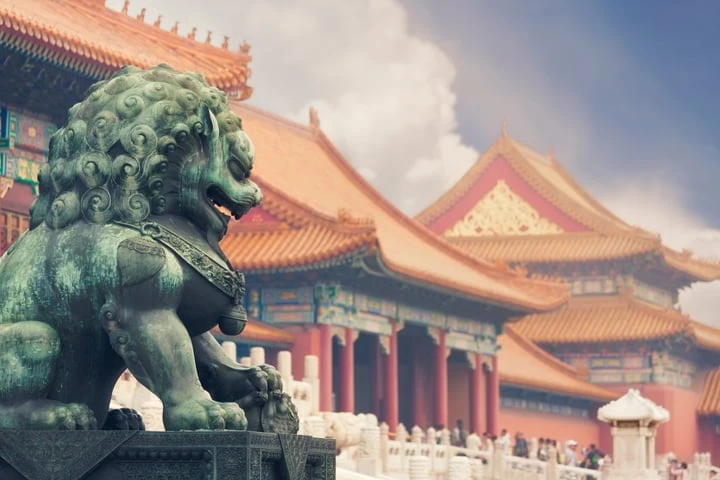
Gay Beijing City Guide
Planning a trip to Beijing? Then our gay Beijing city guide page is for you.
Book A Travel Gay Approved Hotel

Beijing 北京
Beijing, also known as Peking, is the capital of the People's Republic of China and one of the most populous cities in the world, with a population of nearly 20 million.
Located in the north, this world-renowned ancient cultural city is a flourishing metropolis with many historical monuments and scenic spots, precious artefacts and famous architectural wonders. Its international airport is one of the busiest in the world.
Gay Rights in China
Private non-commercial and consensual homosexual conduct between two adults was decriminalised in 1997. In 2001, the Chinese Classification of Mental Disorders removed homosexuality from its list of mental illnesses. Same-sex marriage is not permitted.
The issue of same-sex marriage was discussed during the review of marriage law in 2003 but was rejected. This was the first time that gay rights had been officially discussed in China. The issue was raised and rejected in 2007.
The first Gay Pride in mainland China took place in Shanghai in 2009, although many events were closed down by the authorities. Relatively small-scale 2010 and 2011 Gay Pride celebrations proceeded without problems.
Gay Scene
Beijing usually ranks second to Shanghai when it comes to gay friendliness and fun. However, in recent years the gay scene has also opened up with bars, clubs, spas and even an LGBT Center.
Getting to Beijing
The Beijing Capital International Airport is 26 kilometres from the centre of Beijing.
Buses and taxis are available on the lower level just outside the Arrivals area. There is only one government-run airport bus shuttle. Many hotels run their own airport shuttle bus services.
There is no difference between the various taxi companies in Beijing. Avoid taxi drivers who approach you in the terminal or outside the terminal. There is a taxi line just outside the terminal. Drivers should use their metre.
Getting around Beijing
The subway is possibly the best way to get around Beijing. There are currently five main lines and one other that goes through the Northern suburbs. The Beijing subway is very cheap, rarely out of service and super fast. All this leads to one disadvantage – crowds.
Taxis are a great way to get around and quite cheap. The rate per kilometre is indicated by the sticker on the back window; the rates go up 20% at night. The buses are slow, old and crowded and the roads are stuffed with traffic, plus all the destinations are written in Chinese.
Biking is also a very good way to get around Beijing. The city is dead flat, and the bicycle lanes are very good. Although Beijing’s car drivers are the most considerate, this drawback is made up for by safety in numbers - there are tons of cyclists in Beijing.
Bicycles can be hired from most budget hotels, and there are bike lots everywhere. You can expect to pay anything from 10-50Y for one day’s hire, and you’ll have to leave a deposit.
Where to Stay in Beijing
Many gay visitors stay near the Sanlitun Bar area and the Central Business District. For hotel recommendations, visit our Gay Beijing Hotels and Gay Beijing Luxury Hotels page.
Things to See & Do
Great Wall Of China
This has to be top of the hit list for first-timers to the city. It spans 6700 km and it took over 200 years to complete. The intention was to keep invaders out and the locals in. At its closest point, it is less than 60 kilometres from the city. Open 7:30 am to 5:30 pm.

Tian'anmen Square
Located in the heart of the capital, it is known as one of the largest city squares in the world. It was here that Chairman Mao announced the establishment of the People's Republic of China. This is where locals and tourists mingle, and kite fliers come to enjoy their sport. To give you an idea of size, there are lampposts equipped with megaphones so that crowds of 10,000 people can hear. Free entry.
Forbidden City (Palace Museum)
Lying at the centre of the city, the Forbidden City was the imperial palace during the Ming and Qing dynasties.

Temple Of Heaven (Tiantan)
China's largest existing complex of ancient sacrificial buildings.
Summer Palace
Regarded as the largest imperial garden in China
Underground City
An underground bomb shelter just beneath the city. It was built more than 20 years ago and opened to the public in 2000.Underground City has been closed for renovation since at least February 2008.
Ming Tomb
Located approximately 50 kilometres north of the city. Three of the 13 tombs are open to the public, and only one has been fully excavated.
Wangfuijing Dajie Street
The traditional centre of Beijing was renovated into a pedestrian-only zone in 2000. This is where you should go for some shopping.
Zhoukoudian
A World Heritage Site about 50 kilometers southwest of the city where a skullcap of "Peking Man" was discovered and is believed to have existed there for about 260,000 years ago.
Bird's Nest National Stadium
Designed by award-winning architects Herzog & De Meuron.
Capital Museum
A visit to Beijing wouldn't be complete without checking out its museums. There are so many museums all around the city. If you don't have much time, you can limit your museum tour to Capital Museum which is located on Fuxingmenwai Dajie, the western side of Chang'an Jie. It is a five-story building, allowing for a maximum of 13 concurrent exhibitions which can be viewed in about 5 hours.
Where to Stay in Beijing
Most gay tourists come to Beijing for sightseeing, not its gay scene. Certain areas tend to be more popular due to their central and/or convenient locations.
The Sanlitun Bar street has a vibrant nightlife, with many bars and nightclubs. The Dongcheng District is central and close to major attractions. The Central Business District (CBD) is the city's finance centre which is great for some visitors.
Most above-average hotels in Beijing have English-speaking staff. For hotel recommendations check out our Beijing Mid-Range Hotels or Luxury Hotels pages.
When to Visit
Beijing has a long hot summer, a long cold winter and a short spring and autumn. The hottest month is July and the coldest is January.
Summer is high season for tourists, but it could get unpleasant as the dry air gives way to humidity, and there is little shelter from the summer heat (most of the city's tourist attractions are outdoors). September and October are generally considered the best visiting times. If you are going for an extended stay, then the winter and spring months from November to April are the best time to visit Beijing.
Visa
Most visitors to China require a tourist visa that needs to be obtained prior to arrival. You must have a passport that is valid for at least 6 months remaining and space for a visa, a recent passport-sized photo with a white background, and in most cases, a hotel booking and return air ticket documents.
Apply at your local Chinese Embassy or Consulate. Postal applications are not accepted. Full details can be found at the official visa website - www.visaforchina.org
Drinking Water
Do not drink Beijing's tap water unless first boiled. Keep to bottled water.
Electricity
The domestic power supply is 220V. Sockets are three-flat pin Chinese standard.
Smoking
Smoking in indoor public spaces is banned in Beijing. Regulations, enforced by thousands of inspectors, ban lighting up in restaurants, offices, public transport etc.
Join the Travel Gay Newsletter
Have we got something wrong?
Are we missing a new venue or has a business closed? Or has something changed and we have not yet updated our pages? Please use this form to let us know. We really appreciate your feedback.